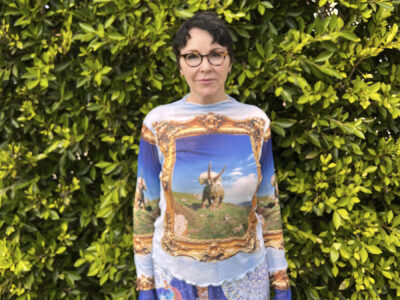Moving A Millennial
It was 95 degrees in Providence, Rhode Island last weekend and I was there to experience that record-breaking heat, armed with boxes and packing tape and bubble wrap. It was the kind of heat that melts you, but one that seems to always be present when you volunteer to help someone move. Why does no one move in October?
I was helping my daughter relocate to her new place. Married three years, she still had half of her wedding presents–never used–stacked in the basement. Brides have those online registries, encouraged to list their dream items: Crate & Barrel plates, high-end pots and pans, crystal champagne flutes, and glass mugs for hot chocolate.
The move might have been better if I hadn’t been reading a book written by a Maya woman from Guatemala, who grew up in a straw hut with eight siblings and no shoes for most of her life. The discrimination against the natives in that country is so criminally heartbreaking that I had thought of little else for days. And then I landed in Providence to help move a Millennial.
Millennials, and the generations that have followed, have grown up in a throwaway society–one where products are designed to be replaced rather than be repaired. From the moment they could swipe a screen, they’ve been surrounded by fast fashion, single-use plastics, and home goods meant to last only until the next trend or move rolls in. Even jobs, and homes have become subject to the same mindset–easily abandoned when something newer, shinier, or more convenient appears. It’s a culture that prizes novelty over longevity, and convenience over craftsmanship, changing not only how they consume but how they imagine their futures.
It is so contrary to how I see the world, that it was hard to believe she grew up in my house. My mother doled out special items passed down from her ancestors with great thought and care, and I was eager to be their new owner. My daughter, on the other hand, brought up a brand new box of expensive cookware and put it in the Goodwill pile, provoking me to rescue it.
It’s not that she’s entitled. She is a hard worker–a true professional–but she hasn’t grown up in a culture that has taught her to value things. She came of age in an era when nearly everything could be replaced with a few clicks, when the next-day delivery box on the doorstep made possessions feel more like temporary conveniences than lasting treasures. Repairs were rarely considered; it was easier–and often cheaper–to buy new. Even gifts, once wrapped in sentiment and meant to last a lifetime, became more about the thrill of unboxing than the quiet pleasure of keeping and caring for something over the years. It’s not her fault–this is simply the rhythm of the world she’s known.
I have a microscope in an olden wooden box in my basement that belonged to my great grandfather. He was a doctor in Jamestown in the early 1900’s and that microscope has been passed around my family for a long time now. And my grandmother’s Chinese writing desk sits in a storage unit because I don’t have the heart to give it away and selling it hasn’t been fruitful. It is worth a million dollars to me because I grew up in a time of treasures, where we connected to things, intrinsically, and because those old things stood for something in our family that can’t be replaced.
Human beings were sentimental throughout most of history because inheriting treasures was often the only way to have treasures. It came down to affordability, really. People were very practical because they were forced to be. Living simply and within our means was all we knew.
Going out to dinner was a yearly treat. A new pair of shoes was a privilege bestowed in September only.
A junk man pulled up into my daughter’s driveway. He’d been hard to hire–he’s a very busy man. He’d just come from a house on the ocean that had been demolished to make way for a new boxy-looking monstrosity made of cement. Everything is being built this way now–flat-roofed, soulless fortresses that look as if they were designed by a committee with no memory of beauty. The old cedar-shingled home he’d hauled away had weathered a century of storms; it had porches that wrapped around like a warm embrace and windows meant to open to the sea air. Now it was rubble, carted off in pieces, just another casualty of a culture that forgets what’s worth keeping.


